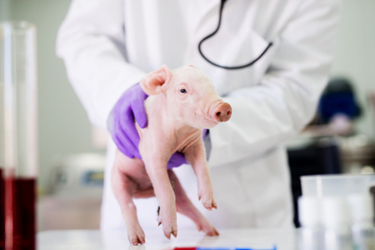Comparison Of Cardiovascular And Respiratory Parameters In Three Strains Of Research Pigs; Sinclair Nanopig™, Göttingen Minipig®, And Yucatan™ Miniature Swine
By Miri K. Pannu, Emily M. Griffith, Seth J. Mueller, Rebecca M. Smith, Derek F. Brocksmith, and Guy F. Bouchard

Minipigs are becoming increasingly popular for nonclinical safety assessment studies, including safety pharmacology. The Sinclair Nanopig™, a selectively bred and diet-managed smaller version of the original Sinclair minipig, reaches sexual maturity at approximately 4.5 months (6–8 kg).
In this study, cardiovascular and respiratory parameters of Sinclair Nanopigs™ were compared to those of Göttingen® and Yucatan™ minipigs (n=62, average weight 19±6 kg, age 6.5 months). Animals were instrumented with DSI L11R implants for electrocardiographic and blood pressure measurements, with data analyzed using Ponemah® software. Baseline physiological values, including heart rate, blood pressure, ECG parameters, and respiratory metrics, were assessed, revealing notable similarities across strains with some key distinctions. Additionally, dofetilide, a compound known to prolong the QT interval, was administered to evaluate cardiovascular sensitivity.
The results provide critical insights into the suitability of the Sinclair Nanopig™ for regulatory toxicology studies. To learn more about the full analysis and conclusions, download our poster.
Get unlimited access to:
Enter your credentials below to log in. Not yet a member of Drug Discovery Online? Subscribe today.
